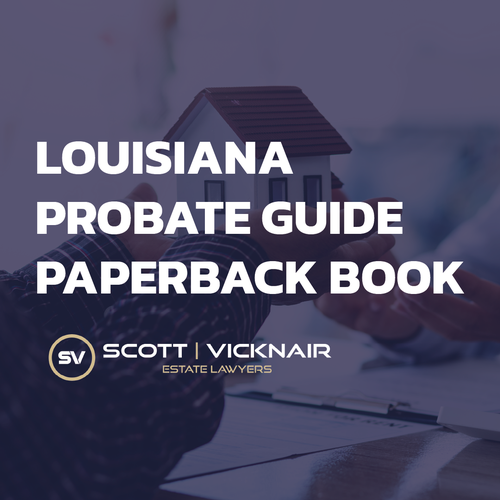The ambiguity in your loved one's will may be immediately apparent, or you may only realize there is a potential disagreement about the will's interpretation after talking to other potential legatees or possible heirs. Either way, you may be left with critical questions about the contested will, such as: 
- How will a Louisiana court interpret a contested will?
- What steps should I take to protect my inheritance?
- When is it time to contact a Louisiana succession lawyer?
What Louisiana Courts Will Consider When Interpreting Contested Wills
According to LA Civil Code 1611, the intent of the testator controls the interpretation of the will. Louisiana statute and case law establish that:
- If the language in the will is clear, the court may not disregard the language in the will to pursue the spirit of what the testator may have intended, and no other evidence should be considered. If an attorney drafted the will, there is a presumption that the attorney knew the law and clearly expressed the testator's intent when writing the will.
- The rules for will interpretation only apply if the court can't ascertain the testator's intent from the will's written language.
- When the written will is ambiguous, the court may use competent evidence to interpret the will.
- Sometimes, the legal effect of a testamentary term changes after a will is executed. If this happens, the court may consider what the legal term meant when the will was executed to determine the testator's intent.
Thus, when a legacy or other testamentary provision is disputed, the court will consider the testator's intent by first considering the written language of the will and then, if necessary, looking at competent evidence of what the testator intended.
How to Protect Your Rights During a Will Contest
Even if you think the testator's intent is indisputable, there are specific steps you can take to make sure your potential inheritance is protected or that the testator's intent is honored. For example, you can:
- Gather original testamentary documents. This can include the decedent's last will and testament, any codicils to the last will and testament, and trust documents.
- Be cautious of what you say to other potential legatees or heirs. A dispute with other potential legatees and heirs may be emotionally painful and frustrating. You do not need to engage in these challenging discussions.
- Protect evidence of the testator's intent. If the testator's intent can't be determined from the plain language of the will, the court will consider other competent evidence to determine the testator's intent. Any other writings or recordings that could be evidence of the testator's intent should be shared with an experienced estate litigation lawyer. Additionally, any witnesses who may speak to the testator's intent should be identified, and those names should be shared with an attorney.
- Hire an experienced estate litigation lawyer. You do not have to handle this legally and emotionally challenging situation on your own.
When to Contact a Louisiana Estate Litigation Lawyer
Life is hard enough after the death of a loved one. As you mourn, a disputed will may bring more anxiety, uncertainty, and frustration to your life. Our experienced Louisiana estate litigation lawyers are here to help you. It is never too soon to give us a call if you have questions about a will or if you think someone else might challenge the will.
Each year, our estate litigation law firm helps hundreds of Louisiana families handle legally and emotionally complex situations. We can provide you with trustworthy advice about your legal rights and about how to protect those rights. Please call or complete our contact form to learn what we can do for you.
|
Related Links: |




